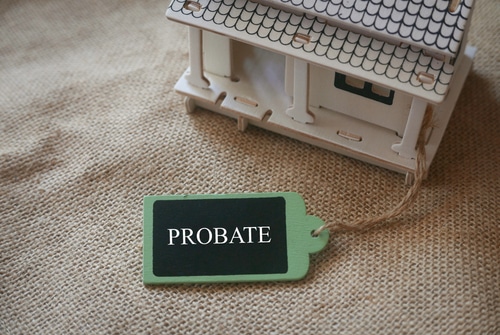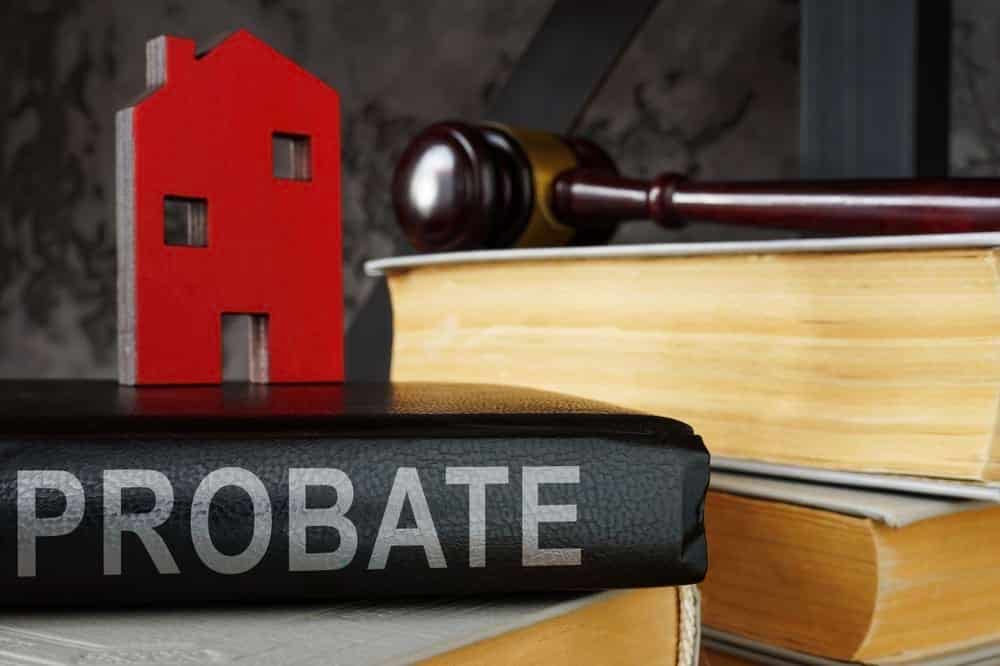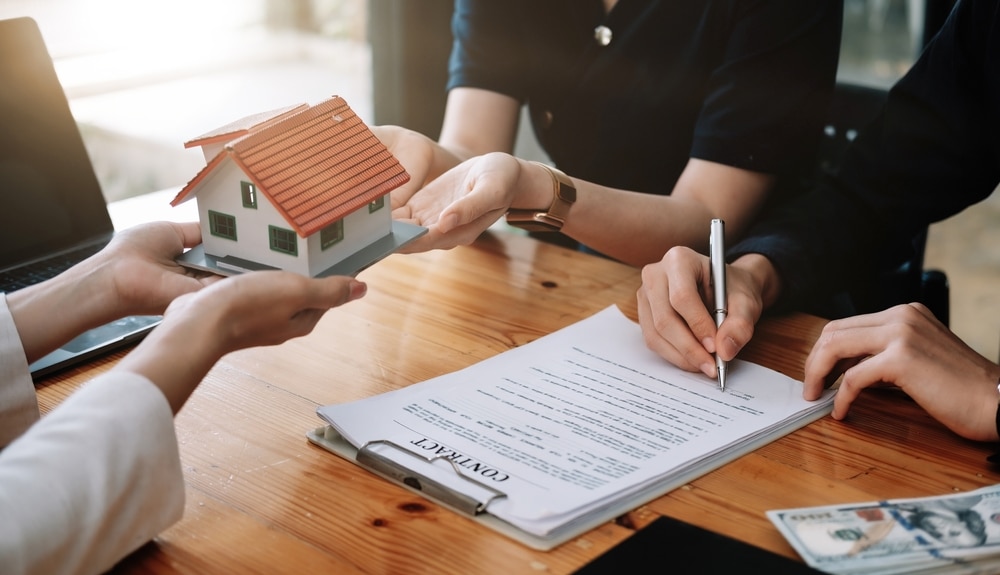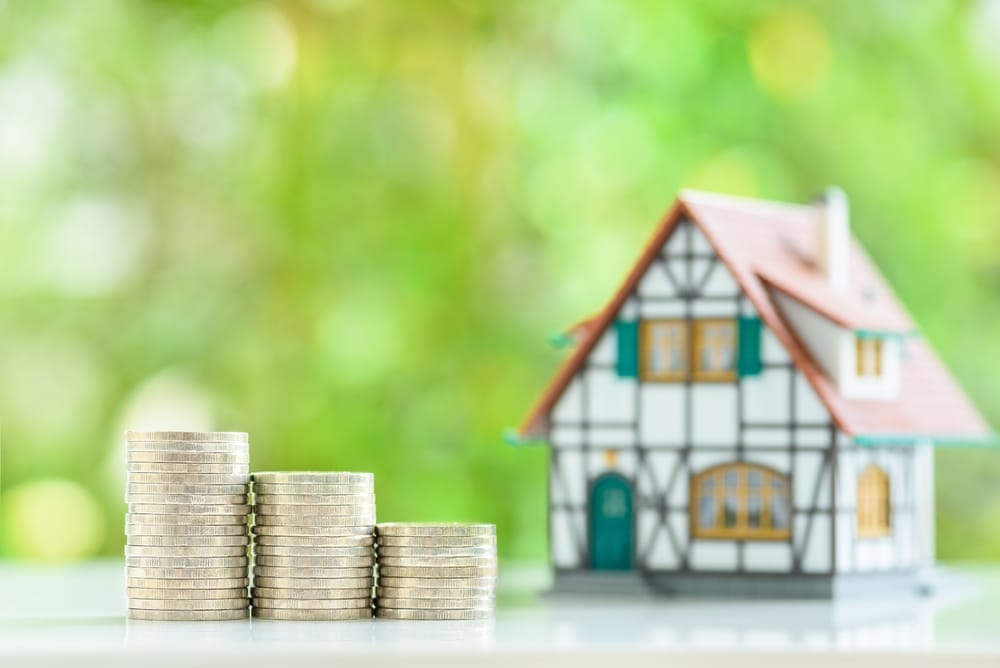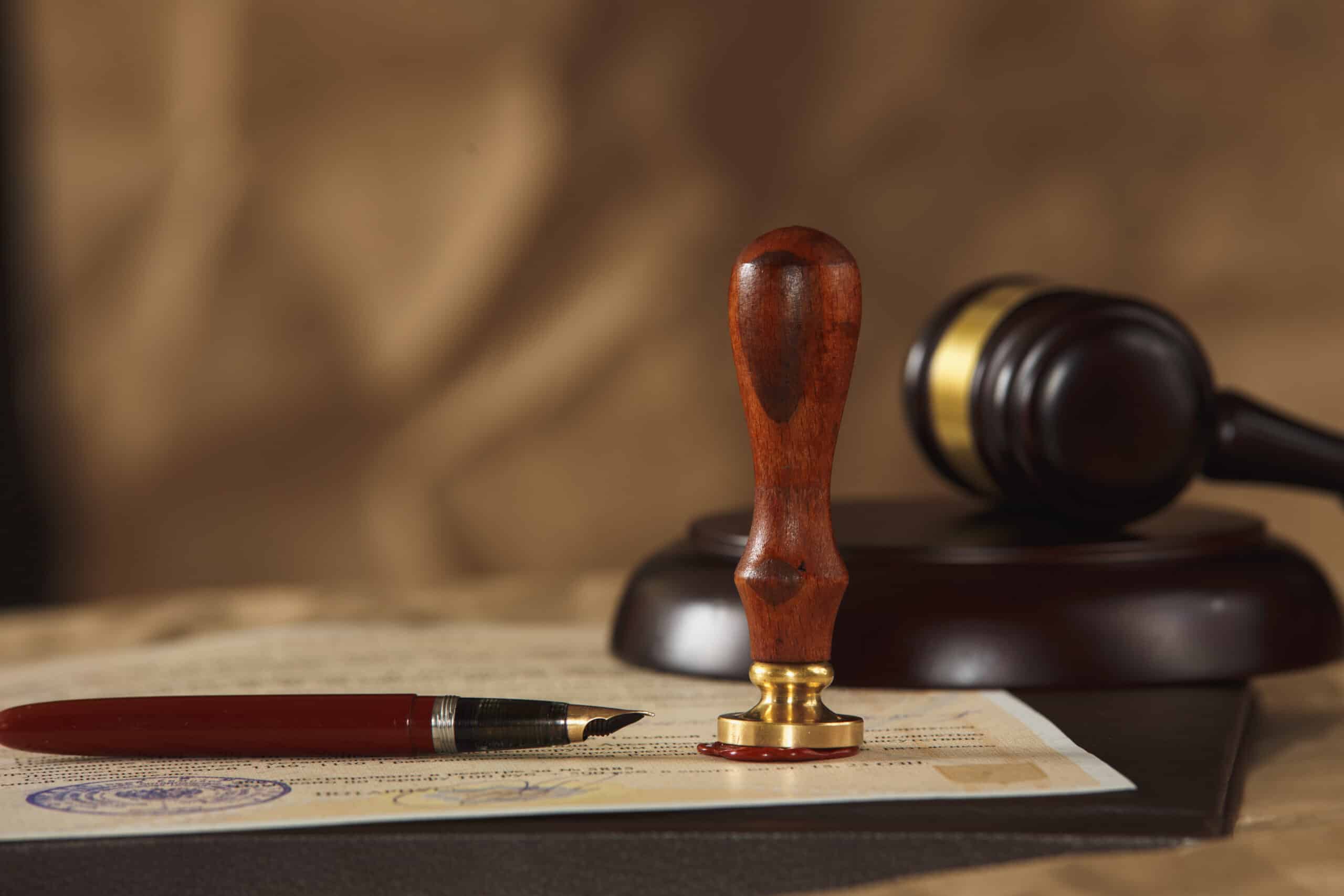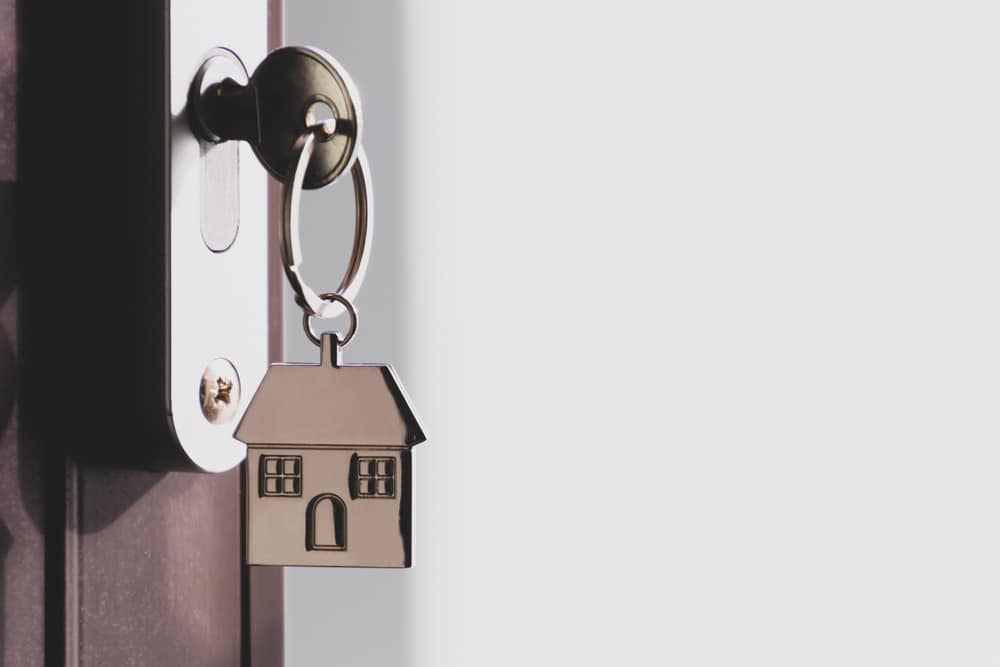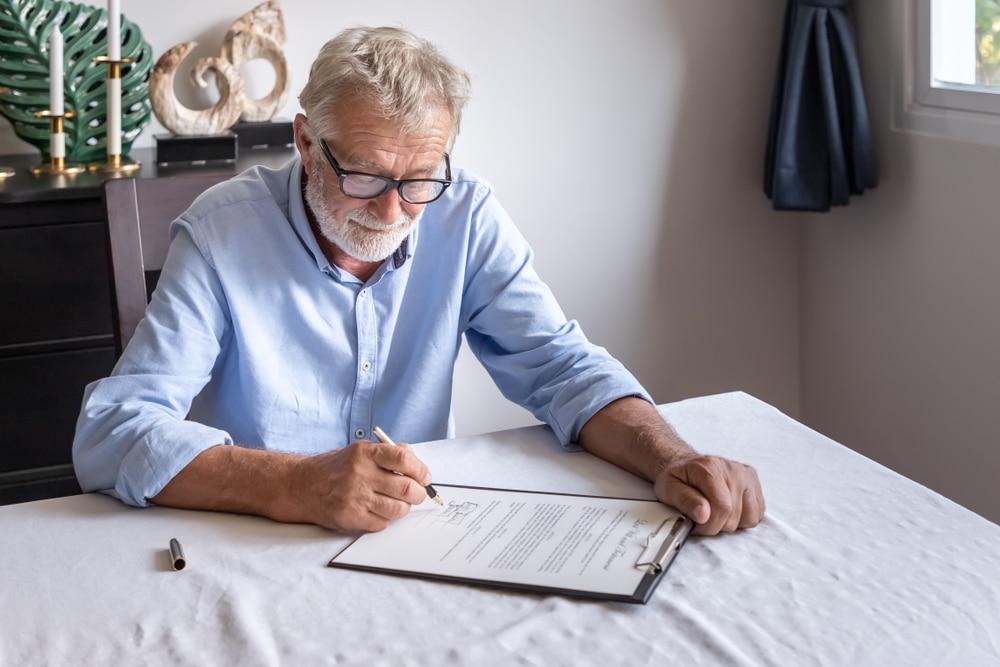It’s important to follow the rules around probate.
You can’t sell inherited property until the probate process is complete, for example.
One common question is: can a house be emptied before probate?
The answer depends on certain conditions.
Read on to find out more.
What is probate?
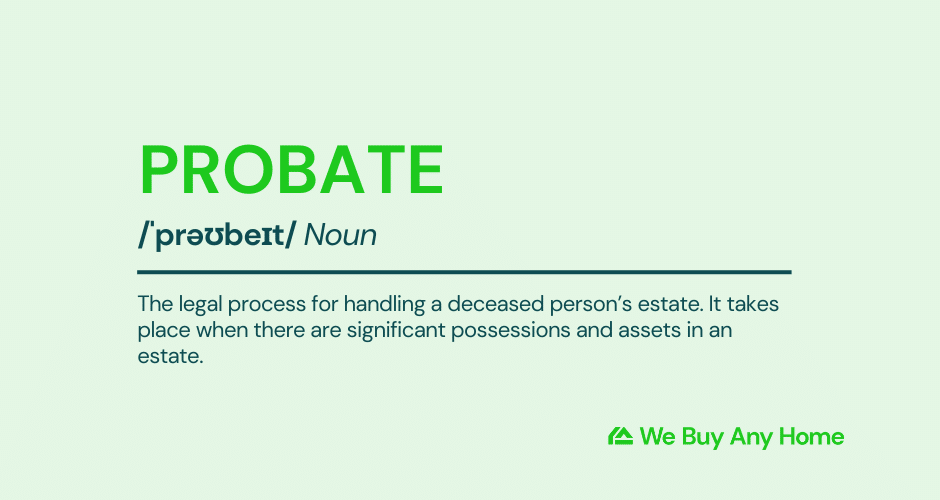
Probate is the legal process for handling a deceased person’s possessions and assets.
They take place when there are significant assets in someone’s estate.
(If there aren’t significant assets, probates aren’t necessary.)
The entire process usually takes six months to a year to complete and involves:
- Establishing a Grant of Probate (an official document giving legal authority to executors)
- Valuing their estate
- Paying any tax (including capital gains tax)
- Paying due debts (including transferring the deceased’s mortgage)
- Distributing their assets to the correct people or organisations.
Probates often involve properties because they are significant assets.
Can I empty a house before probate?
You should wait until probate finishes before emptying a property’s contents.
In fact, nothing should be removed before probate is complete.
However, in practice, this is not usually how things proceed.
Let’s look at two scenarios.
Example one: Siblings are joint executors
Two siblings are joint executors, are due to inherit their parent’s property worth £250,000.
The will does not refer to what should be done with the deceased’s personal property.
In this situation, the siblings often decide among themselves:
- What they want to keep
- What should be given to family members
- What should be sold (and how the proceeds should be distributed).
This is usually done before probate so that no one will contest this. While this is not legally advisable, it is what often happens.
Example two: Complex will with many beneficiaries
A property’s value is over £400,000 and many objects have significant value inside the home.
In this situation, it would be best to wait until after probate.
A complete inventory of the home’s contents will ensure that they are correctly valued.
Inheritance tax is payable on any estate valued at over £325,000.
If you think the estate will be near this figure, don’t remove anything from the home. It could cause legal issues or family tensions – or both.
What happens to the contents of the house?
After probate is granted, the home’s contents can be distributed to the beneficiaries. This will be either according to the will or due to the rules of intestacy.
Siblings’ rights after parents’ deaths in the UK are highly relevant here.
If the beneficiaries are unable or unwilling to take possession of the items, they can be sold at auction. The proceeds go towards the estate.
Significant assets may also need to be sold if any outstanding debts are to be paid.
Low-value items not in the will are the responsibility of the executor/administrator.
Some companies provide a service for clearing a property if you want to avoid this.
Who is responsible for emptying the house after probate?
The executor of the will is responsible for emptying the house after probate.
Of course, they don’t need to clear the house personally —they can hire help to do this.
One potential benefit of emptying the house is that it may be easier to sell quickly when empty. (The executor is also responsible for selling the property).
Steps for cleaning a house after probate
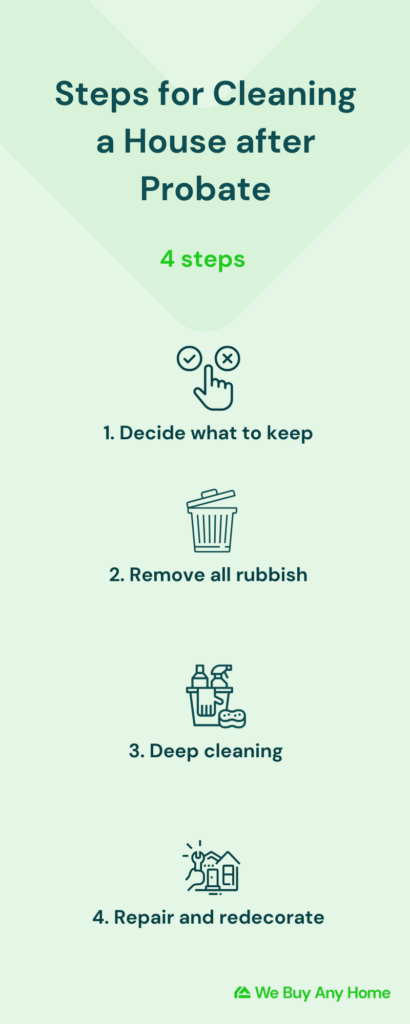
Once the house’s contents have been distributed or sold, it is usually cleared and cleaned.
Of course, you don’t have to do this, but selling the property as it stands can lower its valuation.
Step 1: Decide what to keep
Deciding what to keep or throw away can be difficult.
You may be sentimentally attached to objects with little monetary value.
As with any home, you can leave basic furnishings in place, such as bedside tables, drawers, and beds.
These may have low value and sentimentality.
Being furnished can add value to a property, making it seem warmer and more livable.
Step 2: Remove all rubbish
We’re talking about removing everything, not emptying bins. You may need to hire a skip for this.
Step 3: Deep cleaning
Next, you’ll want to deep clean, which you can either do yourself or hire a professional company to do for you.
This is especially important. After all, the property may be left unsold and unoccupied for months.
You don’t want issues with the damp to build up and devalue a property, for example.
Step 4: Repair and redecorate
This is optional. Some don’t repair or decorate probate properties because they find it draining.
Others want to ensure their loved one’s property stays intact.
Selling a house after probate?
If you are looking to sell a house before probate, We Buy Any Home can help you do this.
We buy houses with cash as quickly – and stress-free – as possible, with no hidden fees.
This saves buyers the time and uncertainty of waiting for probate property to sell.
Contact us today to get a free, no-obligation cash offer.
